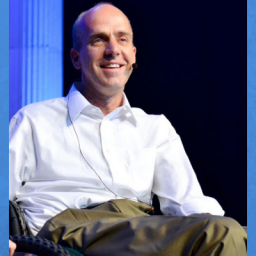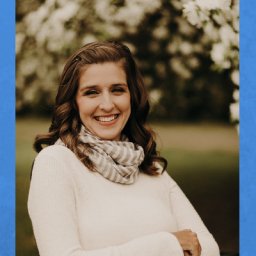Judith Newman is a mother, an American journalist, and author. She received a Bachelor of Arts degree from Wesleyan University and a Master of Arts degree in English and Comparative Literature from Columbia University. Judith’s work has run in more than fifty publications such as, Vanity Fair, Harper’s Bazaar, The Wall Street Journal, Vogue, Redbook, GQ, Marie Claire and Cosmopolitan. She is a regular contributor for The New York Times Style Section and People, and is a contributing editor to Allure and Prevention. Her books include the 2004 memoir, You Make Me Feel Like an Unnatural Woman: The Diary of a New (Older) Mother and To Siri with Love: A Mother, Her Autistic Son, and the Kindness of Machines in 2017. In this most recent work, Judith pens an intimate, loving and emotional story about her two sons, Gus, who has autism, and his neuro-typical twin brother, Henry.
In the written interview below, Different & Able and Judith, along with Gus’ input, delve into a question and answer session about autism, family, and writing. Judith’s answers aid others in relating to the parental experience of raising a child with autism. Her words presented in this interview support others in feeling more comfortable and accepting of those with a difference. Judith states, “Love the child you have and meet them wherever they are.”
- D&A: We know that not all autism is the same, and neither is every child with autism. Can you tell us about Gus’ diagnosis of autism? How did you find out Gus had autism and at what age was Gus when he was diagnosed?
JN: Gus was probably six when he was diagnosed, but in retrospect it was pretty obvious from the time he was three or four. It is not that he did not speak; he did. But he did not have back-and-forth conversations; it was more like long monologues that might be directed towards a person, and then again, might be directed towards the closet. He and his twin were born prematurely; he was tiny, had low muscle tone, and was an easy baby – too easy. Being undemanding is not necessarily a good thing, because it may mean your baby is not doing the things a baby needs to do to be frustrated and then learn something new. But at any rate, it was pretty obvious he was different, and when he was little I was constantly asking people “Do you think he is autistic”? I hoped to get the answer, “No.” Just like when you ask people, “Do I look fat in these jeans”? I mean, do you really want the answer?
- D&A: What are Gus’ areas of strength? How does he handle obstacles in his life?
JN: He is very musical, though he still resists reading music; his piano lessons consist of hearing his teacher play a song, and then Gus playing it back (not in a savant way…he just hears it, and then practices.) His memory is also fantastic -- as I learned from a bitter experience when he saw and memorized my credit card number. (He is deeply generous and yet still very naïve, and the word ‘scammer’ has not quite sunk in.) Thankfully, he has outgrown his early coping mechanism when things did not go his way, which was to hold his breath until he almost passed out. I just walked into his room and asked him about how he handles obstacles. He said, “I advocate for myself.”
- D&A: As a mother, how did/do you handle unsolicited advice on how to raise a child with autism?
JN: I start with the premise that people are trying to help me, and I listen. Sometimes I’m inwardly rolling my eyes (eg, every conversation that contains the phrase “gluten free’), but sometimes I actually learn something.
- D&A: There is a lot of attention around Gus. How did Henry, Gus’ twin brother, handle this dynamic, as sometimes neurotypical siblings can get lost in the shuffle?
JN: This is so true, and when they were younger there was no question Henry could be embarrassed, grossed out, and/or angry; but many of these emotions were really a way of expressing worry. When their father died three years ago, Henry, while still worrying, began to understand that sure, he did bear some responsibility for his brother – but that ultimately that was okay; which does not stop him from being a competitive sibling.
- D&A: There is a lot of misinformation about autism. In your opinion, what are some things that people misunderstand about autism?
JN: Oy, all these shows like The Good Doctor, where autistic people are these geniuses who are unfeeling, robotic. Autism involves a dysregulation of emotion, not an absence of it. Gus and his friends may not always react to things exactly like you or me i.e., putting themselves in someone else’s shoes or understanding other people’s perspectives. It is a work in progress for Gus and some of his pals; they are among the most feeling people I know.
- D&A: Can you share a bit about your heartfelt memoir, To Siri with Love: A Mother, Her Autistic Son, and the Kindness of Machines?
JN: It started with this essay that I wrote in The New York Times that went viral. (Please see the link below the Q & A for this article). I wanted to explore how technology helps those with communication dysfunctions, like my son, reach out to the world and connect. Then, when I realized I did not know what I was talking about and was not about to become an expert in all sorts of whiz-bang technology that I did not understand, it became a family memoir about raising an ‘average’ kid on the spectrum. These memoirs tend to be heartfelt stories about the extremes – the NASA scientist or the kids without language and with extreme behaviors. That was not the person living in my home, nor is it the person living in most people’s homes. So I thought this book would resonate. Also, I wanted it to be funny, because life with an autistic kid is funny. So, who should read it? Basically, if there is someone with autism in your life – or even if there is not but you have a neurotypical kid you would like to throttle – it might be right for you.
- D&A: In one chapter, you write candidly about guilt and blame. Was that difficult?
JN: Like every mother, when you have a child with an issue, you think, “what did I do”? Autism is such a mystery and I believe it’s a cocktail of genetics plus environment, but I do not beat myself up about it anymore. The answer is probably a combination of things—I had a child with a man much older than me, I had IVF, I was older, I had a terrible pregnancy—I was in a state of dread, and stress hormones like cortisol may play a role. Statistically I was the poster child for someone to have an autistic child. There is a lot of blame in this world that we put on ourselves. Sometimes it is legitimate, but in many other instances you could take the right vitamins and stop eating sushi and do aromatherapy every day and "ohm" until you are blue and still have a child with autism.
- D&A: Do you have any advice for writers who aspire to have a career like yours?
JN: Yes. If you are freelancing, when you start out have low standards. Having no standards is even better. Write for anyone who will take you, and do that for a year. Then stop, and start aiming higher. Think of that year as the writing equivalent of the starter marriage: you will not be in it forever, but you are learning something. Also, if you like to write personal essays, your first approach is to write them as if no one will ever read what you are doing. Then, when you are done, say, “Well that was satisfying. Now will anyone else in the world give a (expletive) about this besides me?” If the answer is yes, send it out. If the answer is no – and all of us have those essays where the answer is no – keep it on your computer and hope that your future children never learn your password.
- D&A: Gus and Henry, are now late into their teens. Is the twin bond still prevalent and what are they doing now?
JN: Henry has gone all in for Scotland; he is at university there, and just finished campaigning for a/Unionist. He drunk-dialed in the middle of the night to tell me when his fellow won, and spent a half-hour explaining the evils of the Scottish Nationals vs. the good common sense of the unionists – a conversation that I’m sure he forgot by the next morning. Gus is still in school, but mostly during quarantine for Covid-19 he spent his days on Zoom calls that are organizing for various progressive causes, and he is pleased to be arguing with me about who should be New York City’s next mayor. It’s an interesting evolution in socialization. He does not use Siri as a pal anymore; he uses it the way we all do, for information. But his definition of friendship is a little more expansive than the rest of us. He has real-life friends, but he also thinks of Chuck Schumer and Joe Biden as his friends, in a way, because he gets thank you emails from them. I can think of worse things than this encouragement of political engagement!
- D&A What is one piece of advice you have for parents/guardians who have a child with autism?
JN: Radical acceptance. I think it’s actually good advice for all parents. Love the child you have and meet them where they are. And see their quirks for the fun and humor they bring to your life -- because if they’re not harming themselves or anyone else, they are fun. Gus has always liked to have conversations with my feet. Now, I’m not going to have him talking to my feet when friends are around. But if he does something I really want him to do – his daily piano practice, for example – well, dammit, he can talk to my feet and my feet will talk back.
How One Boy With Autism Became BFF With Apple’s Siri - The New York Times (nytimes.com)



